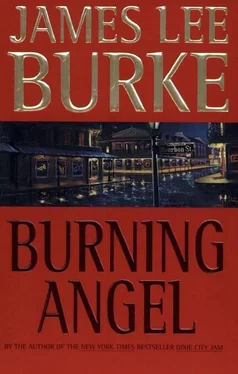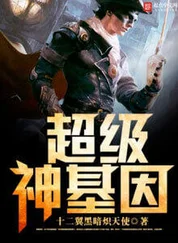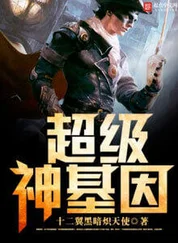James Burke - Burning Angel
Здесь есть возможность читать онлайн «James Burke - Burning Angel» весь текст электронной книги совершенно бесплатно (целиком полную версию без сокращений). В некоторых случаях можно слушать аудио, скачать через торрент в формате fb2 и присутствует краткое содержание. Город: New York, Год выпуска: 1995, ISBN: 1995, Издательство: Hyperion, Жанр: Детектив, на английском языке. Описание произведения, (предисловие) а так же отзывы посетителей доступны на портале библиотеки ЛибКат.
- Название:Burning Angel
- Автор:
- Издательство:Hyperion
- Жанр:
- Год:1995
- Город:New York
- ISBN:978-0-7868-6082-1
- Рейтинг книги:5 / 5. Голосов: 1
-
Избранное:Добавить в избранное
- Отзывы:
-
Ваша оценка:
- 100
- 1
- 2
- 3
- 4
- 5
Burning Angel: краткое содержание, описание и аннотация
Предлагаем к чтению аннотацию, описание, краткое содержание или предисловие (зависит от того, что написал сам автор книги «Burning Angel»). Если вы не нашли необходимую информацию о книге — напишите в комментариях, мы постараемся отыскать её.
Burning Angel — читать онлайн бесплатно полную книгу (весь текст) целиком
Ниже представлен текст книги, разбитый по страницам. Система сохранения места последней прочитанной страницы, позволяет с удобством читать онлайн бесплатно книгу «Burning Angel», без необходимости каждый раз заново искать на чём Вы остановились. Поставьте закладку, и сможете в любой момент перейти на страницу, на которой закончили чтение.
Интервал:
Закладка:
James Lee Burke
Burning Angel
FOR Rollie and Loretta McIntosh
Commending myself to the God of the oppressed,
I bowed my head upon my fettered hands,
and wept bitterly.
— From Twelve Years a Slave ,
an autobiographical account
by Solomon NorthupChapter 1
The Giacano family had locked up the action in Orleans and Jefferson parishes back in Prohibition. Their sanction and charter came from the Chicago Commission, of course, and no other crime family ever tried to intrude upon their territory. Hence, all prostitution, fence operations, money laundering, gambling, shy locking labor takeovers, drug trafficking, and even game poaching in south Louisiana became forever their special province. No street hustler, grifter, second-story creep, Murphy artist, dip, stall, or low-rent pimp doubted that fact, either, not unless he wanted to hear a cassette of what Tommy Figorelli (also known as Tommy Fig, Tommy Fingers, Tommy Five) had to say above the whine of an electric saw just before he was freeze-dried and hung in parts from the wood fan in his own butcher shop.
That’s why Sonny Boy Marsallus, who grew up in the Iberville welfare project when it was all white, was a kind of miracle on Canal back in the seventies and early eighties. He didn’t piece off his action, pimp, or deal in drugs or guns, and he told the old fat boy himself, Didoni Giacano, to join Weight Watchers or the Save the Whales movement. I still remember him out there on the sidewalk, down from the old Jung Hotel, on an electric-blue spring evening, with the palm fronds rattling and streetcars clanging out on the neutral ground, his skin as unblemished as milk, his bronze-red hair lightly oiled and combed back on the sides, always running some kind of game — craps, high-stakes bouree, washing Jersey money out at the track, bailing out mainline recidivists licensed bondsmen wouldn’t pick up by the ears with Q-Tips, lending money with no vig to girls who wanted to leave the life.
Actually Sonny practiced the ethics that the mob falsely claimed for themselves.
But too many girls took a Greyhound out of New Orleans on Sonny’s money for the Giacanos to abide Sonny’s presence much longer. That’s when he went south of the border, where he saw firsthand the opening of the Reagan theme park in El Salvador and Guatemala. Clete Purcel, my old partner from Homicide in the First District, hooked up with him down there, when Clete himself was on the run from a murder beef, but would never talk about what they did together, or what caused Sonny to become a subject of strange rumors: that he’d gone crazy on muta and pulche and psychedelic mushrooms, that he’d joined up with leftist terrorists, had served time in a shithole Nicaraguan jail, was working with Guatemalan refugees in southern Mexico, or was in a monastery in Jalisco. Take your choice, it all sounded unlike a Canal Street fixer with scars in his eyebrows and a coin-jingling re bop in his walk.
That’s why I was surprised to hear he was back in town, fading the action again and putting deals together at the Pearl, where the old green-painted iron streetcar made its turn off St. Charles onto the lovely hard-candy glitter and wind-blown palm-dotted sweep of Canal Street. When I saw him hanging in front of a game room two blocks up, his tropical suit and lavender shirt rippled with neon, he looked like he had never been under a hard sun or humped an M-60 or rucksack in a jungle where at night you burned leeches off your skin with cigarettes and tried not to think about the smell of trench foot that rose from your rotting socks.
Pool-room blacks leaned against parking meters and storefront walls, music blaring from boom boxes.
He snapped and popped his fingers and palms together and winked at me.
“What’s happening’, Streak?” he said.
“No haps, Sonny. You didn’t get enough of free-fire zones?”
“The city? It’s not that bad.”
“Yeah, it is.”
“Drink a beer, eat some oysters with me.”
His accent was adenoidal, like most blue-collar New Orleans people whose English was influenced by the Irish and Italian immigrations of the late nineteenth century. He smiled at me, then puffed air out his mouth and cut his eyes up and down the street. He fastened his eyes on me again, still smiling, a man gliding on his own rhythms.
“Ouch,” he said, and stuck a stiffened finger in the middle of his forehead. “I forgot, I heard you go to meetings now, hey, I love iced tea. Come on, Streak.”
“Why not?” I said.
We stood at the bar in the Pearl and ate raw oysters that were briny and cold, with flecks of ice clinging to the shells. He paid from a cash roll of fifties in his pocket that was wrapped with a thick rubber band. His jaws and the back of his neck gleamed with a fresh haircut and shave.
“You didn’t want to try Houston or Miami?” I said.
“When good people die, they move to New Orleans.”
But his affected flamboyance and good humor weren’t convincing. Sonny looked worn around the edges, a bit manic, maybe fried a little by his own velocity, the light in his eyes wary, his attention to the room and front door too pronounced.
“You expecting somebody?” I asked. “You know how it is.”
“No.”
“Sweet Pea Chaisson,” he said.
“I see.”
He looked at my expression.
“What, that’s a surprise?” he asked.
“He’s a bucket of shit, Sonny.”
“Yeah, I guess you could say that.”
I was regretting my brief excursion into the illusionary pop and snap of Sonny Boy’s world.
“Hey, don’t go,” he said.
“I have to get back to New Iberia.”
“Sweet Pea just needs assurances. The guy’s reputation is exaggerated.”
“Tell his girls that.”
“You’re a cop, Dave. You learn about stuff after it’s history.”
“See you around, Sonny.”
His eyes looked through the front window onto the street. He fitted his hand over my forearm and watched the barman drawing a pitcher of beer.
“Don’t walk out now,” he said.
I looked through the front glass. Two women walked by, talking simultaneously. A man in a hat and raincoat stood on the curb, as though waiting for a taxi. A short heavyset man in a sports coat joined him. They both looked out at the street.
Sonny bit a hangnail and spit it off the tip of his tongue.
“Sweet Pea’s emissaries?” I said.
“A little more serious than that. Come into the can with me,” he said.
“I’m a police officer, Sonny. No intrigue. You got a beef, we call the locals.”
“Save the rhetoric for Dick Tracy. You got your piece?”
“What do you think?”
“The locals are no help on this one, Streak. You want to give me two minutes or not?”
He walked toward the rear of the restaurant. I waited a moment, placed my sunglasses on top of the bar to indicate to anyone watching that I would be back, then followed him. He bolted the rest room door behind us, hung his coat from the stall door, and peeled off his shirt. His skin looked like alabaster, hard and red along the bones. A blue Madonna image, with orange needles of light emanating from it, was tattooed high up on his right shoulder.
“You looking at my tattoo?” he said, and grinned.
“Not really.”
“Oh, these scars?”
I shrugged.
“A couple of ex-Somoza technicians invited me to a sensitivity session,” he said.
The scars were purple and as thick as soda straws, crisscrossed on his rib cage and chest.
He worked a taped black notebook loose from the small of his back. It popped free with a sucking sound. He held it in his hand, with the tape hanging from the cover, like an excised tumor.
Читать дальшеИнтервал:
Закладка:
Похожие книги на «Burning Angel»
Представляем Вашему вниманию похожие книги на «Burning Angel» списком для выбора. Мы отобрали схожую по названию и смыслу литературу в надежде предоставить читателям больше вариантов отыскать новые, интересные, ещё непрочитанные произведения.
Обсуждение, отзывы о книге «Burning Angel» и просто собственные мнения читателей. Оставьте ваши комментарии, напишите, что Вы думаете о произведении, его смысле или главных героях. Укажите что конкретно понравилось, а что нет, и почему Вы так считаете.











![Twelve Winged Dark Burning Angel - Супер Ген Бога. Том 2 [101-200 главы]](/books/412125/twelve-winged-dark-burning-angel-super-gen-boga-tom-2-101-200-glavy-thumb.webp)
![Twelve Winged Dark Burning Angel - Супер Ген Бога. Том 1 [1-100 главы]](/books/412126/twelve-winged-dark-burning-angel-super-gen-boga-tom-1-1-100-glavy-thumb.webp)